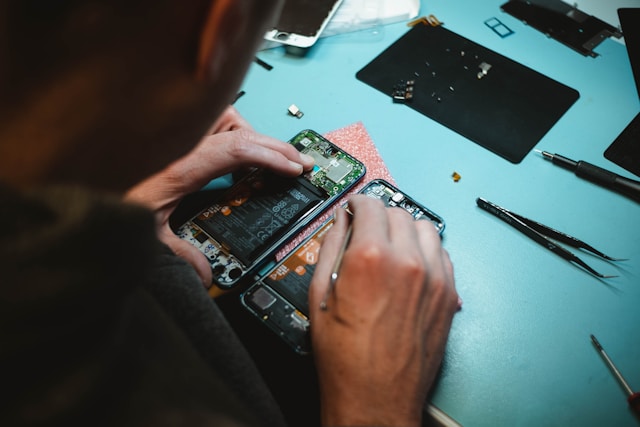 POLICY
POLICY
 POLICY
POLICY
 POLICY
POLICY
Oregon Governor Tina Kotek today signed Senate Bill 1596 into law, joining a growing list of other U.S. states that believe citizens should have more options to repair their consumer products.
Oregon follows California, Colorado, Maine, Massachusetts, Minnesota and New York, which each have similar laws, covering about 70 million Americans in total. Right-to-repair laws ask companies to give consumers more tools to fix their products while supplying documentation such as repair manuals as well as providing the necessary spare parts to make a device work again.
For manufacturers, such rules are a threat to their bottom line, which is why there has been so much resistance in the past. Maintenance and buying spare parts can be prohibitively expensive, but throwing away devices and replacing them with new ones is costly to the consumer and the environment. Earth.org has said right-to-repair laws could “reduce millions of tons of e-waste.”
Oregon’s bill is slightly different in that it has the added stipulation that asks companies to refrain from implementing verification checks for various components that would usually be needed for the device to work. This is known in the industry as “parts pairing.”
Apple Inc. has opposed this part of the bill, stating earlier this year that it will “undermine the security, safety, and privacy of Oregonians by forcing device manufacturers to allow the use of parts of unknown origin in consumer devices.” Nonetheless, John Perry, the company’s senior manager of secure dystem design, said in general, the bill is “a step forward in making sure that the people of Oregon, myself included, can get their devices repaired easily and cost effectively.”
Google LLC has also applauded the bill, saying in January that it is “a compelling model for other states to follow.” Consumer rights groups, which have been championing the new spate of such bills from the start, feel this is a job well done by Oregon, not just in terms of protecting consumers but also the environment, given so many electronic products end up in landfills.
“By eliminating manufacturer restrictions, the Right to Repair will make it easier for Oregonians to keep their personal electronics running,” said Charlie Fisher, director of the Oregon chapter of the Public Interest Research Group. “That will conserve precious natural resources and prevent waste. It’s a refreshing alternative to a ‘throwaway’ system that treats everything as disposable.”
The bill will go into effect on Jan.1, 2025.
Support our mission to keep content open and free by engaging with theCUBE community. Join theCUBE’s Alumni Trust Network, where technology leaders connect, share intelligence and create opportunities.
Founded by tech visionaries John Furrier and Dave Vellante, SiliconANGLE Media has built a dynamic ecosystem of industry-leading digital media brands that reach 15+ million elite tech professionals. Our new proprietary theCUBE AI Video Cloud is breaking ground in audience interaction, leveraging theCUBEai.com neural network to help technology companies make data-driven decisions and stay at the forefront of industry conversations.